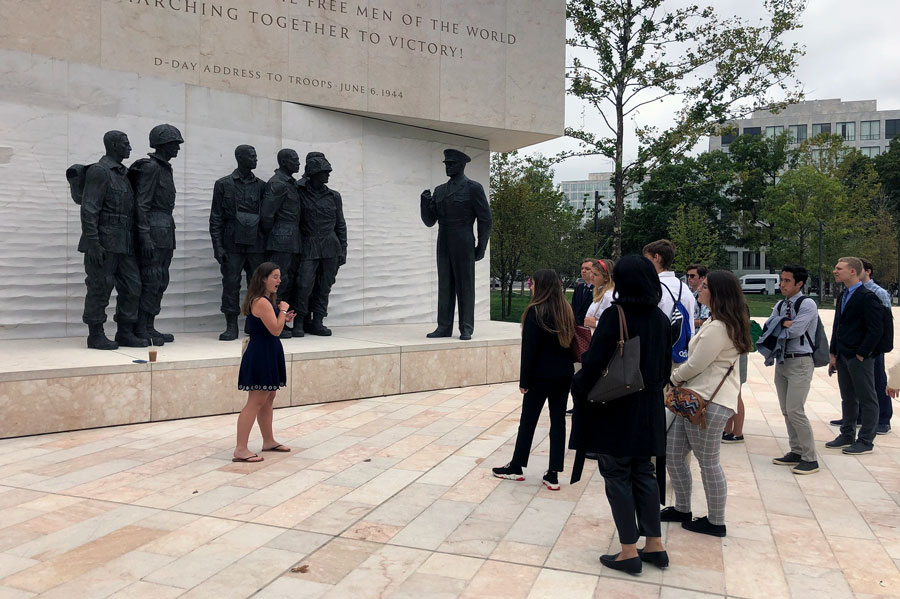
For over 35 years, the Eisenhower Institute has embodied President Dwight D. Eisenhower's legacy of leadership and public policy by providing dynamic programs that engage scholars, policymakers, students, and citizens. These programs have grown and evolved in response to the most pressing global challenges of the day, ensuring that Eisenhower’s approach to dialogue and creative problem-solving endures across generations.
The Eisenhower World Affairs Institute
The Eisenhower World Affairs Institute was founded in 1983 by colleagues and confidants of President Eisenhower. Susan Eisenhower, the granddaughter of the late President, was a founding director and later the first president of the Institute. She designed and implemented one of the nation’s most renowned public policy programs on U.S.–Soviet relations and remained with the Institute for several years. The success of the program and its emphasis on international cooperation and dialogue would go on to define the Institute's work over the next twenty years.
Center for Political and Strategic Studies
Susan Eisenhower left the Institute in 1989 and founded the Center for Political and Strategic Studies (CPSS) in 1991. Throughout the 1990s, CPSS established a reputation as a leading organization in the promotion of informed debate on U.S. relations with the former Soviet Union and on issues of international security. Addressing topics such as nuclear non-proliferation, NATO expansion, and National Missile Defense, the organization also conducted regional studies on subjects including health and environmental degradation in Russia and the impact of emerging Islam in Central Asia. In 2000, the programs of the CPSS merged with the Eisenhower World Affairs Institute under the leadership of President and CEO Susan Eisenhower.
Gettysburg College
Gettysburg College was founded in 1832 by anti-slavery theologian Samuel Simon Schmucker and now ranks among the top liberal arts colleges in the United States.
The College has long been associated with the life and legacy of Dwight D. Eisenhower. When Eisenhower came to Gettysburg in 1918 to command Camp Colt, a tank training camp, the College provided housing for the young officer and his new bride at the home of the Gettysburg College chapter of Alpha Tau Omega. After the Second World War, Eisenhower returned to accept an honorary doctorate degree. Following his presidency, Eisenhower retired to his farm in Gettysburg and took an active part in the life of the College, serving on the board of trustees and maintaining a campus office where he wrote his memoirs.
In 1991, Gettysburg College strengthened its ties to the Eisenhower World Affairs Institute. The college was an ideal partner as the Institute worked throughout the 1990s to promote an enhanced undergraduate educational focus on public affairs by sponsoring numerous programs that linked education, scholarship, and public policy.
The Eisenhower Institute & Gettysburg College Today
The Eisenhower Institute formally merged with Gettysburg College in 2009 and the Institute is now operated from two complementary sites at the heart of the nation's capital and in the historic Gettysburg home where Dwight and Mamie Eisenhower lived in 1918. The Institute remains a premier center for research, discussion, and outreach in areas of leadership and public policy, facilitating top-level dialogue among policymakers and providing distinctive learning opportunities for undergraduate students.
